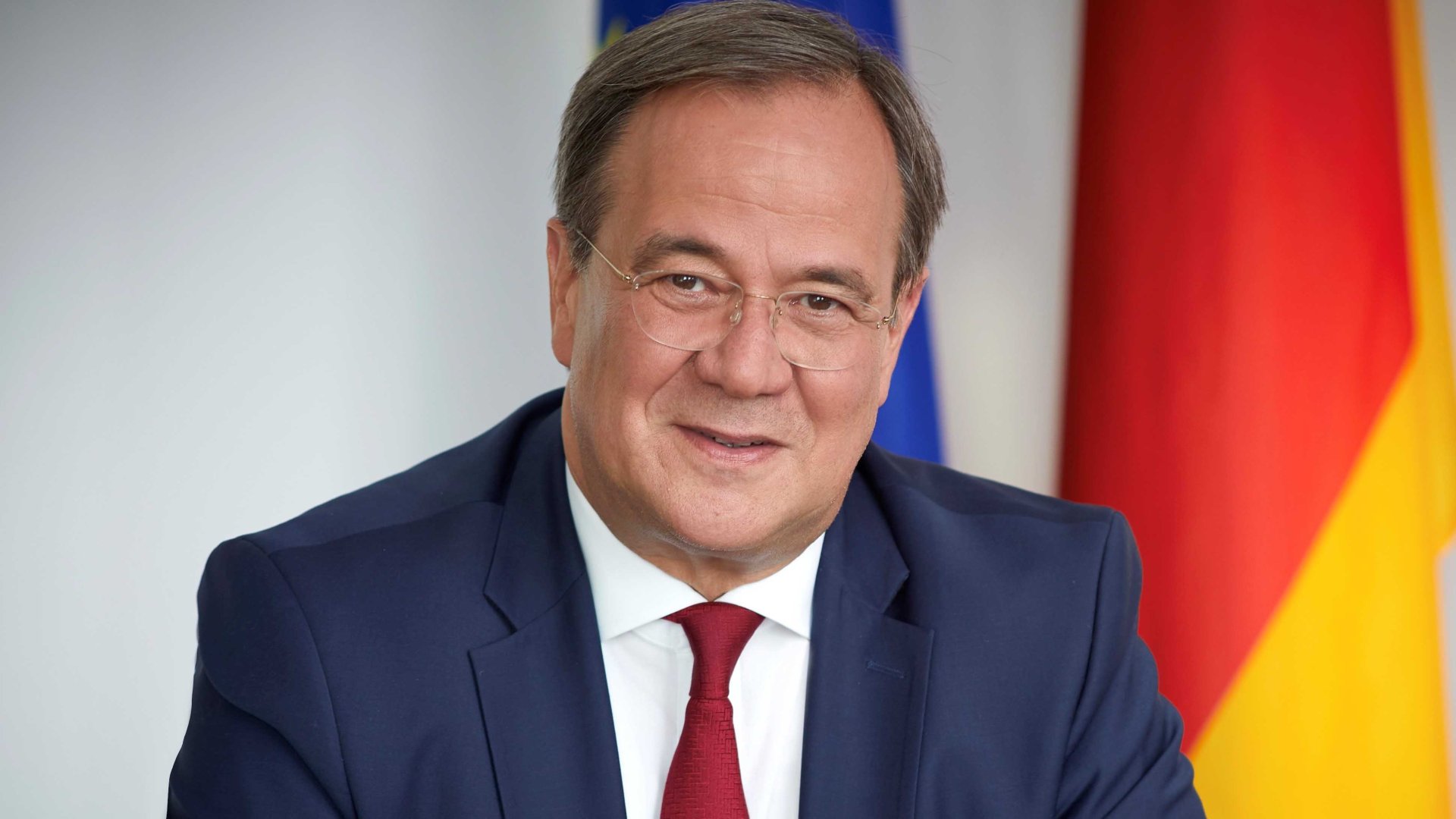“Germany must remain a country that's open to the world”
Back in 2015, Armin Laschet led an expert commission convened by the Robert Bosch Stiftung to rethink Germany’s refugee policy. The findings of the commission remain central to him even today.
The summer and fall of 2015 were a dramatic time. I remember September 4 particularly well. That was when I appeared alongside Chancellor Angela Merkel at an election campaign event in Essen. There was a strange atmosphere. Some refugees held up signs reading “Thank you, Germany” while right-wing extremists were repeatedly shouting during Merkel's speech.
After that, Merkel and I flew by helicopter to Cologne to celebrate the CDU's 70th anniversary in North Rhine-Westphalia. It was there that we saw the first pictures of the refugee trek that had set off from Budapest on the highway to Austria.
Immediately after that celebration, Chancellor Merkel spoke with her Austrian counterpart, Werner Faymann, and then took the decision not to close the border and to allow the refugees stranded in Hungary to continue their journey to Germany. Otherwise, she feared, a humanitarian catastrophe would ensue. We talked a lot during those eventful hours. Even today, I still think she made the right decision.
‘We can do this!’ – What remains of Angela Merkel’s famous words?
Overview with all the statementsThese reflections by Armin Laschet are part of a series within our funding topic immigration society. In 2015, Angela Merkel famously said, “We can do this!” — referring to Germany’s response to the arrival of hundreds of thousands of refugees within just a few months. Ten years on, we have asked experts and partners from our projects: What progress has Germany made in terms of integration?
I also felt and still think the sentence she said a few days before September 4 was equally appropriate: “We can do it.” What else could she have said? If as a politician, you doubt your ability to accomplish a key task, you have to step down. And the fact is we did manage it. We succeeded in taking in and providing for the hundreds of thousands of refugees who came to us in the course of 2015. We weren't naive. We knew that this was only the sprint phase, which would be followed by the marathon task of integration.
At that time, I was chairing an expert commission set up by the Robert Bosch Foundation to realign refugee policy. It brought together representatives from politics, government agencies, business, and society. Under the immediate impression of the refugee crisis, we presented 99 recommendations. Among other things, we addressed how local authorities could be supported in this enormous task, not least financially. The decentralized structure of the Federal Republic – our proven system of local self-government – was crucial in overcoming that crisis. Local authority employees, mayors and volunteers on the spot really achieved extraordinary things.
“We weren't naive. We knew that this was only the sprint phase, which would be followed by the marathon task of integration.”
At the same time, our commission developed proposals for rapid access to the labor market. After all, participation in working life is crucial for social integration: How should we avoid false incentives, provide further training, and ensure that those with the right skills also find the right jobs?
This is still a key issue today. Unfortunately, however, we talk far too little about the specific challenges. The polarization I already sensed on September 4, 2015 has continued to intensify. As a result, the issue of refugees is discussed almost exclusively from the perspective of deterrence. Of course, we have to control immigration – if only to prevent our country from becoming overwhelmed and ensure we can take good care of those who need help. But centrist political parties should not adopt the far right’s issues because strategically speaking, it only weakens them.
Numerous election campaigns have shown that adopting the populists' agenda only makes them stronger. Instead, we must clearly put forward our own position. We must remain a country that’s open to the world. We should see immigration not only as a challenge, but also as an opportunity. The real task for the next ten years will be to shape integration and participation in such a way that everyone benefits.

